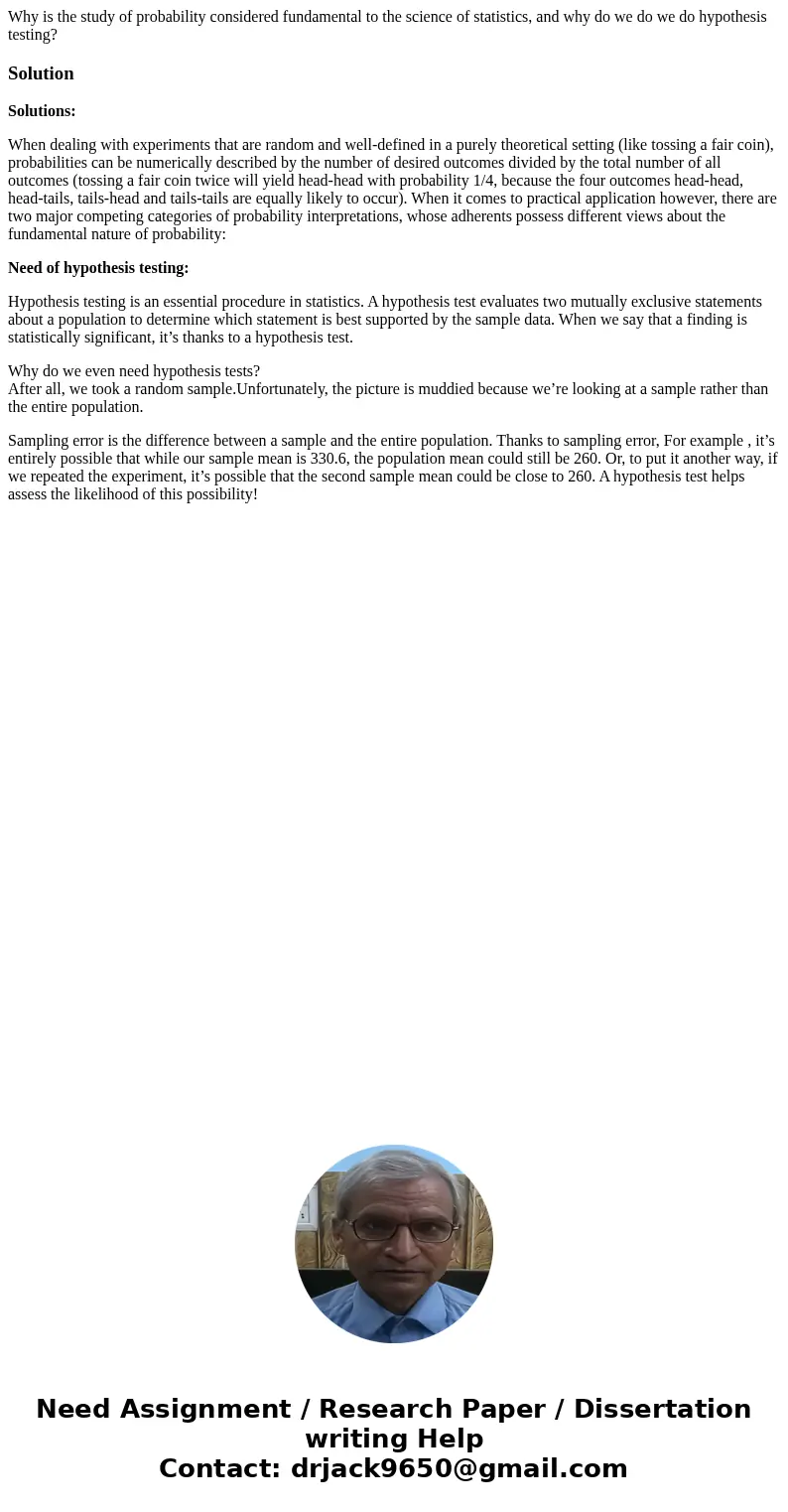Why is the study of probability considered fundamental to th
Why is the study of probability considered fundamental to the science of statistics, and why do we do we do hypothesis testing?
Solution
Solutions:
When dealing with experiments that are random and well-defined in a purely theoretical setting (like tossing a fair coin), probabilities can be numerically described by the number of desired outcomes divided by the total number of all outcomes (tossing a fair coin twice will yield head-head with probability 1/4, because the four outcomes head-head, head-tails, tails-head and tails-tails are equally likely to occur). When it comes to practical application however, there are two major competing categories of probability interpretations, whose adherents possess different views about the fundamental nature of probability:
Need of hypothesis testing:
Hypothesis testing is an essential procedure in statistics. A hypothesis test evaluates two mutually exclusive statements about a population to determine which statement is best supported by the sample data. When we say that a finding is statistically significant, it’s thanks to a hypothesis test.
Why do we even need hypothesis tests?
After all, we took a random sample.Unfortunately, the picture is muddied because we’re looking at a sample rather than the entire population.
Sampling error is the difference between a sample and the entire population. Thanks to sampling error, For example , it’s entirely possible that while our sample mean is 330.6, the population mean could still be 260. Or, to put it another way, if we repeated the experiment, it’s possible that the second sample mean could be close to 260. A hypothesis test helps assess the likelihood of this possibility!

 Homework Sourse
Homework Sourse